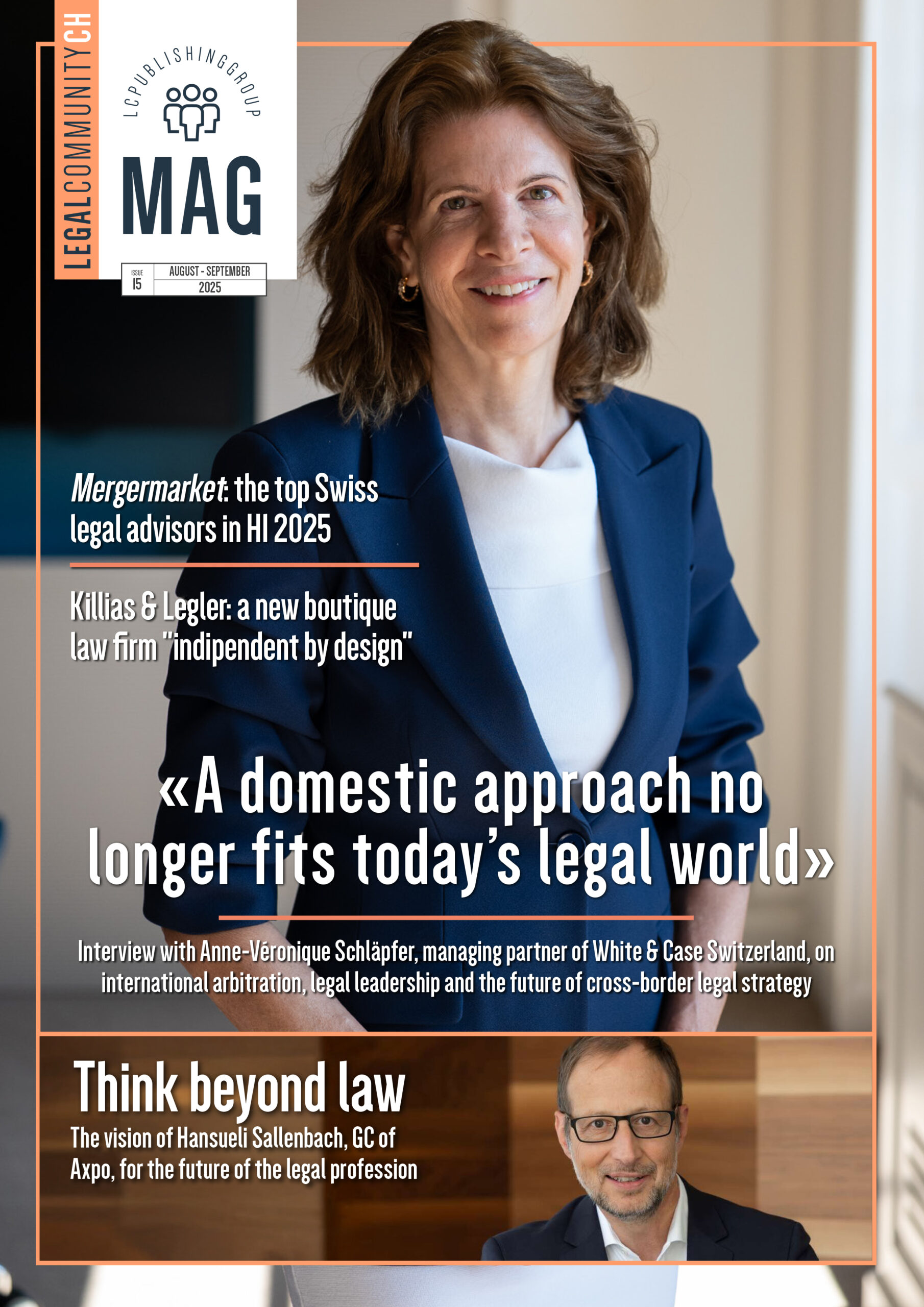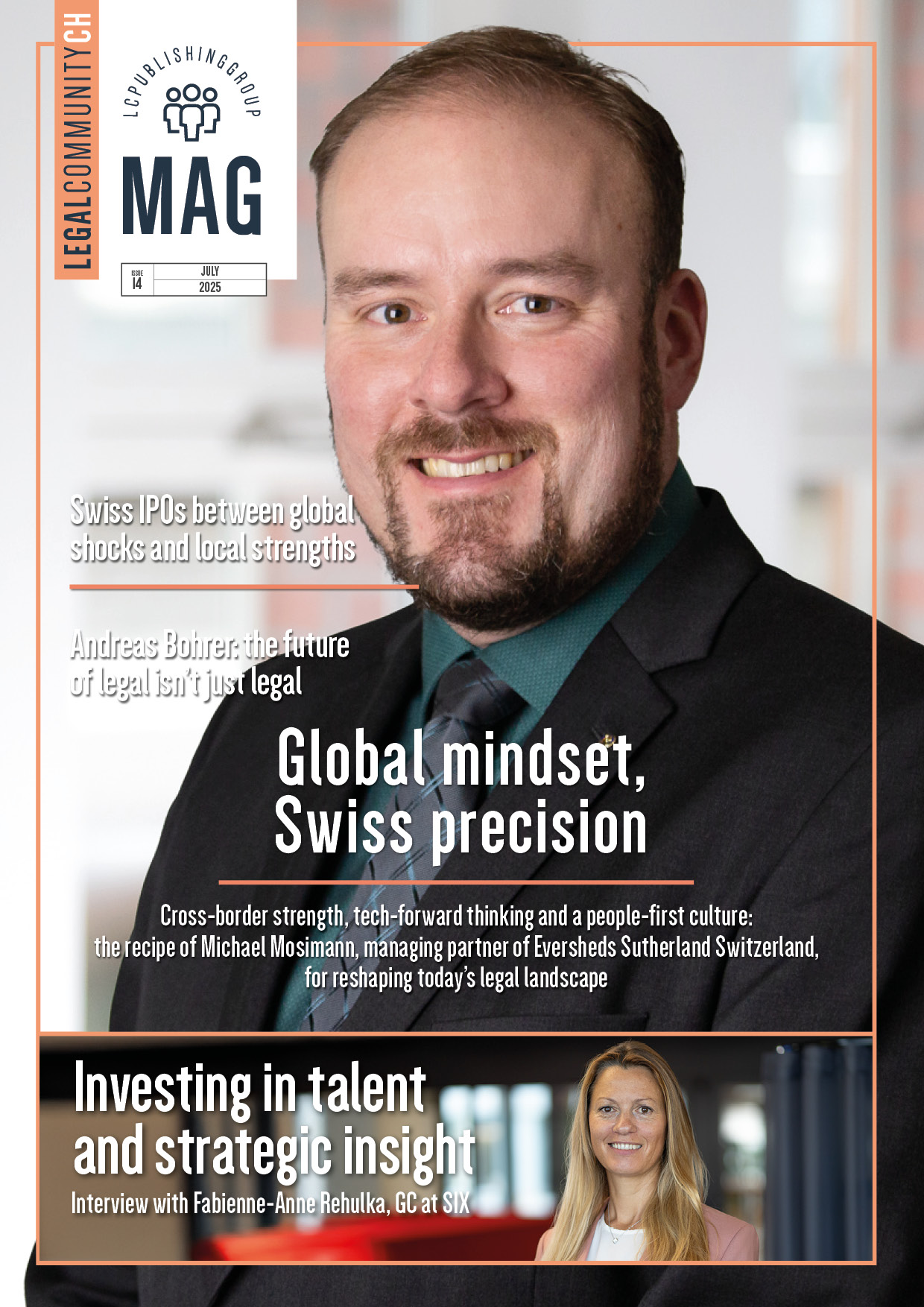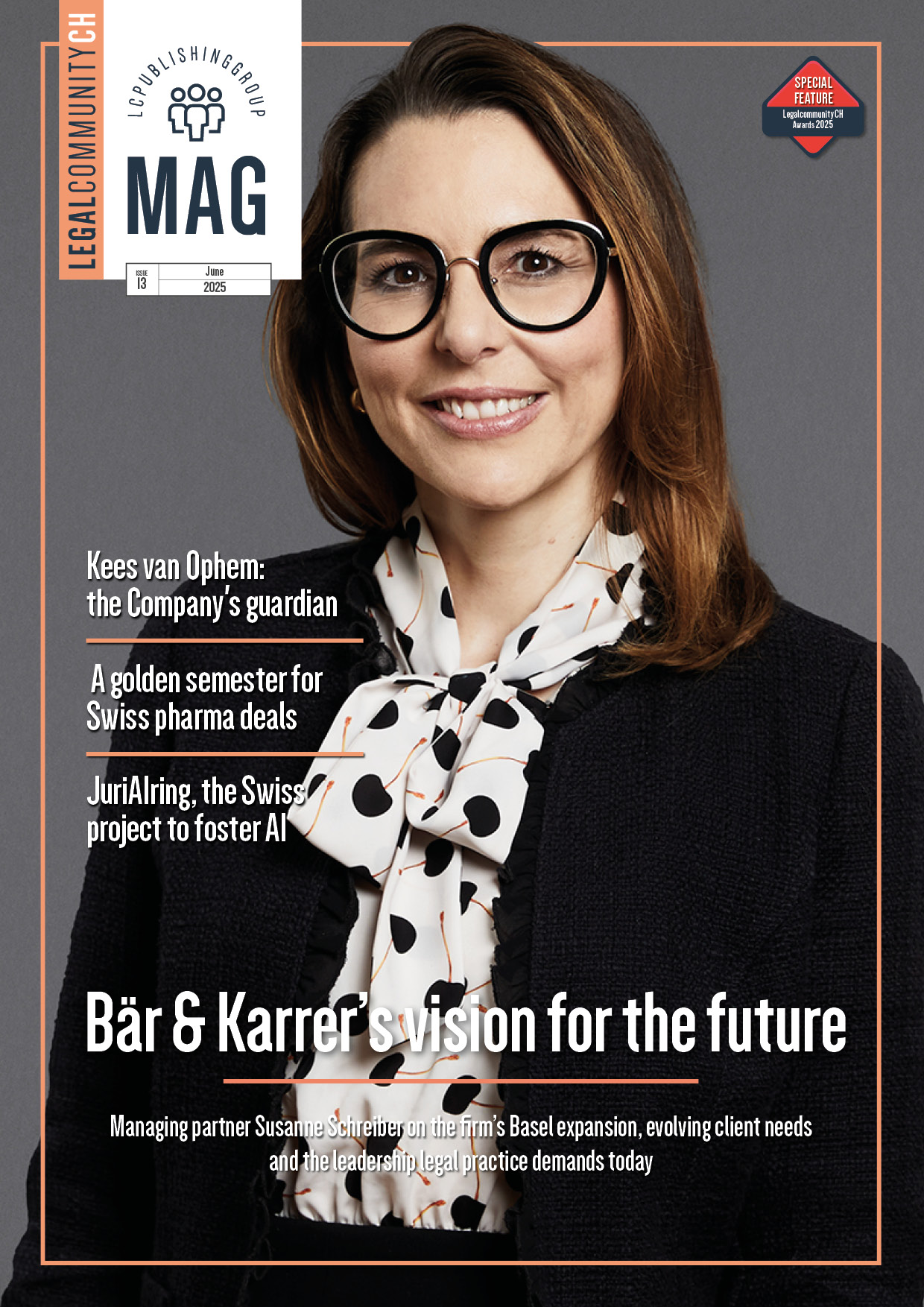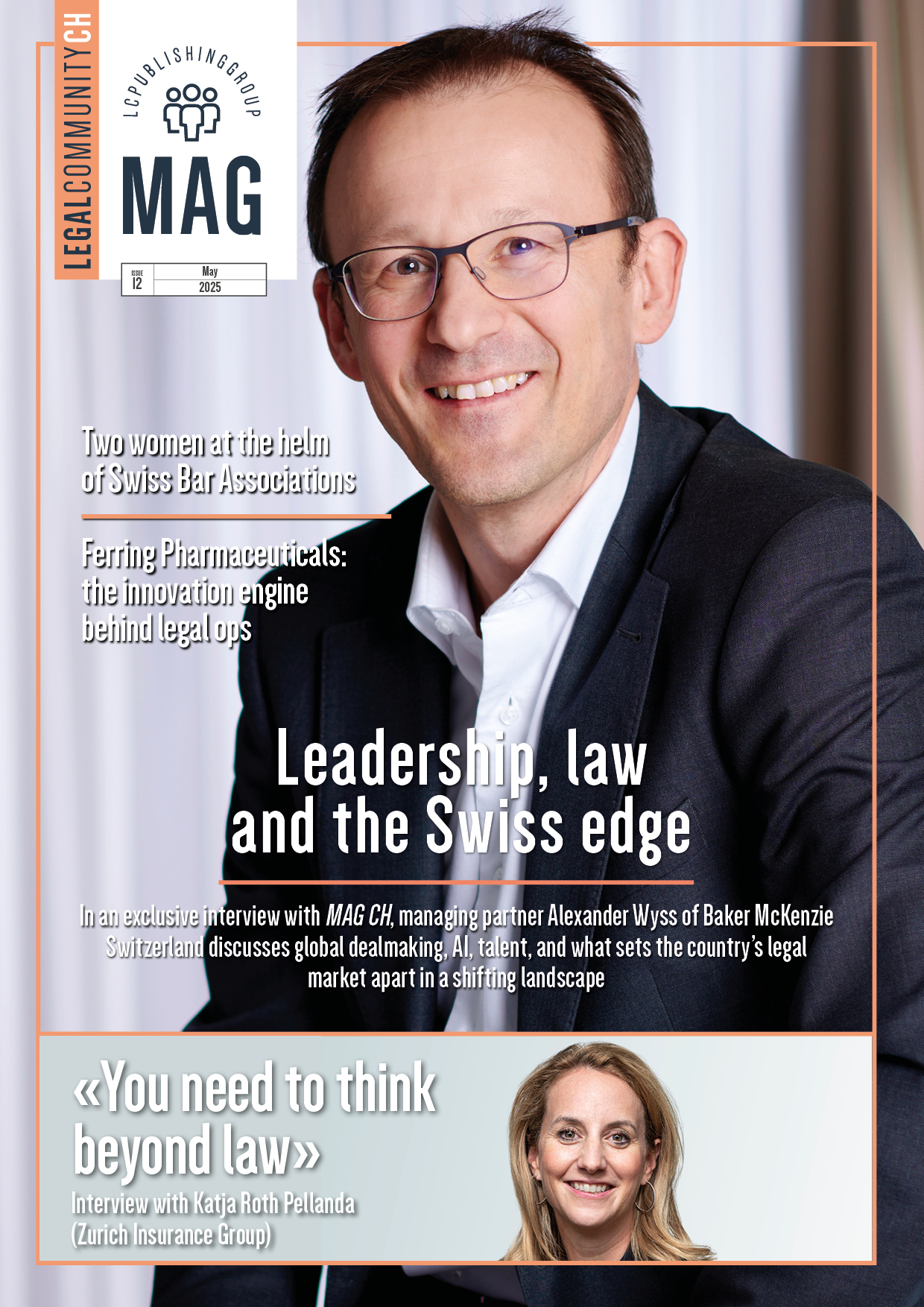Fresenius Medical Care: vertically integrated, many stakeholder
by alessio foderi
As one of the main providers of products and services for people with chronic kidney failure, Fresenius Medical Care has around 345,000 patients in its global network of around 4,000 dialysis clinics. According to the latest figures, 3.5 million patients in the world need dialysis treatment. At the same time, they operate 45 production sites in more than 20 countries, to provide dialysis products such as dialysis machines, dialyzers and related disposables. The company is active in more than 150 countries. During a pandemic the challenge of keep running these activities becomes the main focus.
To understand how the company copes with this challenging situation, Mag and Legalcommunity.ch interviewed Kees van Ophem, who joined Fresenius Medical Care in January 2015 as Executive Vice President & Global General Counsel. With a long career in the telecoms’ industry, van Ophem switched to life sciences in 2005, becoming international General Counsel at Medtronic. Currently, at Fresenius Medical Care, he supports its vertically integrated healthcare strategy of providing treatment solutions directly to patients globally via its medical devices, consumables and services.
What kind of impact is Covid-19 having in your daily work?
The health and safety of our patients and colleagues are the top priority for Fresenius Medical Care. We have substantially increased the safety and hygiene standards in our dialysis clinics. This way, we can continue to provide our patients, who are classified among the most vulnerable risk groups, with their life-sustaining treatment. As governments have set up emergency measures and the pandemic takes its toll, it is a challenge to keep the supply chains working across the borders and to protect our patients and employees. For example, to keep supply to our clinics and customers going despite the myriad of new and sometimes contradictory measures, we had to decide to invest in additional warehousing in different countries. So we could insure uninterrupted supply of life-saving products to our patients.
Considering your business, I guess remote work is not an option for every employee…
Exactly. As for the office personnel, home office is a workable alternative to the company office Technology for remote working has proven to be effective. But this is true only for a part of us, as nurses and doctors working in the clinics need to be there and assist the patient. Similar for employees at our production sites, technical services and maintenance personnel. We also have home dialysis products and services, but that requires special measures at home and many patients prefer or need in-clinic treatment. In parallel, manufacturing sites also require employees on-site: though we have invested a lot in automation, we need employees on site that keep the production going.
Could you be more specific on home hemodialysis?
The process is similar as in-center hemodialysis, except that the dialysis machine and treatment is at home. Still, you need to be in contact with doctors and maintenance personnel, but that can partly be done remotely via digital technology. During home and in-center hemodialysis, your blood is filtered outside of your body through a dialyzer or “artificial kidney” to remove unwanted waste, toxins and excess fluids.
Do you think this pandemic would represent an opportunity for legal personnel work?
For the legal functions, I think it’s an opportunity to step up and support the crisis management teams. The other unexpected side-effect is that, at least for the office personnel, people realize working remotely is feasible. It gives more flexibility for the employee and the company and gives the company to lower the costs of office space and for travel and move to more and more a combination of mobile and office work in the future for certain roles. Due to the extraordinary circumstances, there is lot of pressure on keeping up with the events and quickly changing emergency regulations: we are in frequent contact with authorities given the particular challenges of the virus and related emergency regulations.
What the state of art of your digital health?
We have been developing digital healthcare solutions long before the coronavirus started to spread. The pandemic, however, will accelerate – not to say boost – digital health. The technical feasibility as such is there, but it also sometimes regulations that made it difficult to fully benefit from the technological possibilities. For instance, in many country doctors have to be on site in the clinic and cannot provide their services remotely. Hopefully this situation will give an impetus in changing regulations and allow more flexibility where this is in the interest of patients.
What are the major legal implications?
When you talk about digital you talk about data. In this context, cybersecurity is a big topic we need to look at. We are very focused on that, as we have a lot of algorithms and applications in our machines and devices and handle a huge amount of data for optimal treatments, but also for reimbursement purposes. At the same time, data privacy is very important for us especially for the data of the patients, who remain our main focus. We use big data analysis to improve our treatments, delay or prevent kidneys diseases. There is a lot of focus in using that data, that we usually anonymize. For clinical studies and research purposes, we also have set up also specific consent forms.
Data analytics that can lead towards personalized medicine…
We need the data coming out of the machines to improve treatment at an individual basis and provide the right treatment for each specific patient. Data analytics allow us to do more and more personalized healthcare. This is crucial as everybody has a different kind of physiology. At the same time, data analytics are more and more important as an increasing number of insurance companies and reimbursement programs are implementing payment schemes based on results and individual patient outcomes.
You said you’re now engaged with crisis management teams for the coronavirus, but what would you be another focus of your in-house legal function?
We have a monitor appointed by the US Government as a consequence of our FCPA settlement last year. This is a key focus for us. We are working with the monitor to further improve the effectiveness of our compliance and financial controls.
The number of dialysis patients worldwide is expected to increase. Are there specific projects concerning emerging markets you are working on?
We are focused on treating patients anywhere in the world. We are often a first mover to provide treatments in clinics in the emerging markets you mention and we provide products to over 150 countries. However, some countries do not allow or limit contributions from private healthcare providers. In these cases, we sell products to public hospitals, but, where possible, we also provide dialysis services next to the public system. Sometimes we are also present through joint ventures when specific regulations require that. Over time, many governments realize that we can add even more value and help them improving healthcare on the ground.
You actually face a double competition…
We are vertically integrated company since the beginning and one of the first to do so in healthcare. We thus compete in many markets: the machines, the consumables and the provision of treatments. On the competitive side there are companies focused on treatment only (e.g. DaVita). On the machine side, for instance, a lot of German and Asian players are our competitors.
Do you think will it be an increase of work on competition law and compliance field?
Fair competition is an important principle for the company. Our key focus is providing the best services for both our customers and patients, whist complying with applicable regulations, including competition laws and anti-corruption regulations. With the ever increasing amount regulations and markets we are active in, it gets more and more complex and challenging. Anyway, compliance remains our key focus as it is also part of competing fairly.
















